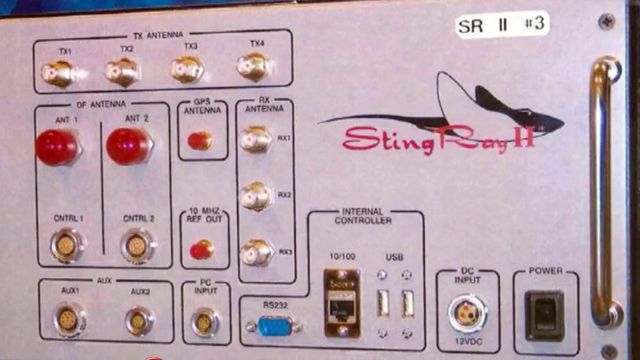Raleigh, Durham police using device that tracks cellphone data
Police in Raleigh and Durham are using a controversial tool to fight crime. Commonly called Stingray, the small suitcase-sized technology acts like a cell tower and allows police to track cellphone data.
Posted — UpdatedCommonly called Stingray, the small suitcase-sized technology acts like a cell tower and allows police to track cellphone data. Critics say the devices, which are also in use in Charlotte and Wilmington, invade people's privacy because they can collect information on the location and activity of cellphones.
"It is a very concerning technology because of its capability, but it's also concerning because it's so secretive," said Sarah Preston, policy director of the American Civil Liberties Union's North Carolina chapter.
Raleigh police have used Stingray for five years, police department spokesman Jim Sughrue said Monday, but he didn't provide any other information regarding use of the device.
"The departmental use of the technology complies with state and federal requirements, and the police attorney is routinely consulted when questions exist," Sughrue said.
Raleigh spent $126,000 on the system, while Durham spent more than $200,000. Federal grants are usually used to cover Stingray purchase costs.
With little or no oversight of Stingray use, Preston said she worries about implications on the general public, even if the surveillance is designed to target suspected criminals.
"They're scooping up all of this information about innocent people, and we don't know what they're doing about all that information that they're collecting," she said.
In the balance of security and privacy, some area residents said have no problem with the technology, while others see it as "Big Brother" checking up on their movements.
"If it helps them catch criminals, I'm fine with it," Lezley Kennison said.
"I think everyone has a right to their own privacy," Kevin Berry said.
Raleigh defense attorney Elliot Abrams said the Constitution requires police to obtain a warrant before delving into people's private lives.
"The question here is not whether they can use the technology. The question is whether they can use the technology without first going before a judge," Abrams said.
The U.S. Supreme Court ruled in June that cellphones and other electronic devices, because of the breadth of personal data they can contain, can’t be searched as a matter of course when someone is arrested. Any search of electronics would require a separate warrant, the court said.
"Modern cellphones, as a category, implicate privacy concerns far beyond those implicated by the search of a cigarette pack, a wallet or a purse,” Chief Justice John Roberts wrote in the ruling.
That case addressed only the rights of those who are already in police custody and didn't include the types of searches police do with the Stingray, although the issues are similar.
Abrams said he expects that issue, too, will ultimately have to be decided by the Supreme Court.
• Credits
Copyright 2024 by Capitol Broadcasting Company. All rights reserved. This material may not be published, broadcast, rewritten or redistributed.





